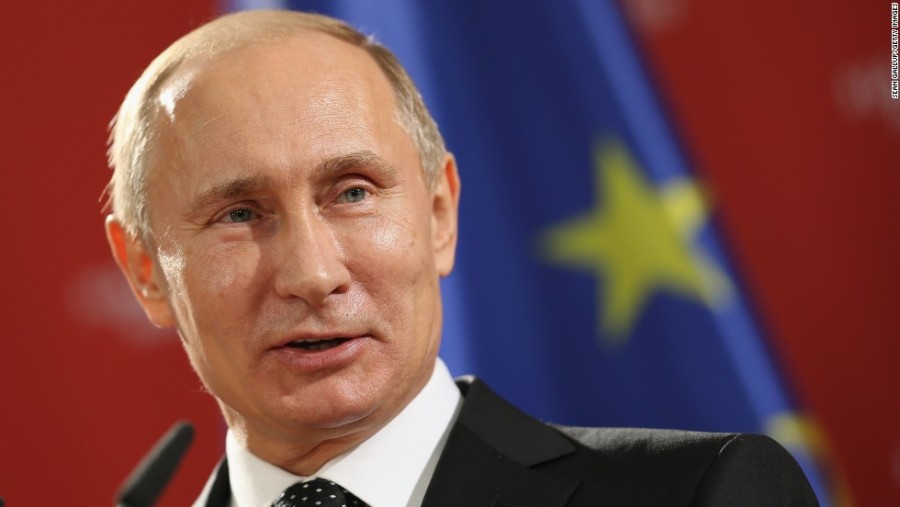Russia begins airstrikes in Middle East, somewhat beneficial to U.S.
November 11, 2015
In recent months, President Vladimir Putin of Russia has authorized his armed forces to conduct not only air strikes and close air support for Syrian regime forces, but he has also established a foothold on the ground with the reinforcement of bases and the introduction of ground personnel.
With the revelation to the world of Russia’s first strikes in Syria, condemnation came almost immediately from Western nations and more specifically the United States. Is the hypocrisy of this really not evident? The United States has been bombing the Middle East for decades, Russia has been doing it for two months.
Not to say that Russia’s presence in the region and the militaristic intentions it holds are right, but it is far better to allow them to be sucked back into their 1980s Afghani quagmire rather than for the U.S. to continue to cling to the fantastical hope that with just a few more bombs and a few billion dollars more of weapons to the “good” terrorists and then democracy will be born.
Obviously Russia’s intent is not to further the cause of democracy or to advance human rights in Syria, in fact its more so to protect Russia’s own naval bases and airstrips, but with the devastation that ISIS has inflicted upon President Assad’s own forces, it seems highly unlikely that the addition of Russian air dominance will win the day for the regime.
That being said, Russia will be faced with the ultimatum to either accept they cannot win the day for their Syrian ally, or be forced to take on an offensive rather than supportive role in the conflict. With polls in Russia still showing that a majority of citizens oppose direct boots on the ground and the uproar surely to be caused by the arrival of young Russians coming home in body bags, Putin would be faced with a stark dilemma should he choose to scale up his involvement.
Russia already has a history, and a rather dismal one at that, of interfering in Middle Eastern affairs, and the United States, being the master of such disruptions, most certainly does. During the 1980s, the Soviet Union became bogged down in a long a drawn out war fighting on the side of their Afghani allies against the predecessors of Al Qaeda, the muhajadeen (who the United States funded…).
Unable to win without committing overwhelming force and military might to the conflict, the Soviets withdrew with their tails between their legs and had learned the lesson the Americans would learn a decade late: No one can change the cultural dynamics of the Middle East, even with selfish motives such as Russia’s or hopeful ones like the United States.
Therefore, it is actually beneficial to the United States to allow Russia to engage in its endeavors in Syria. On the bright side they are doing a far better job than the West has been in terms of combating ISIS and other groups, due solely to the fact that Russia does not differentiate the “less bad” terrorists from the “more bad,” terrorists like the United States does. Granted this is out of support for Assad, but it is still far better than just cavalierly giving M-16s and TOW anti-tank weapons to the groups that “aren’t as bad.”
Secondly, if Russia does choose to become directly involved in the conflict via infantry support, and intelligence analysis of regime forces’ weakness proves true, history say that they will be drawn back down into an endless stalemate with relentless and fanatical enemies. This combined with a faltering ruble, stagnant economy and a skeptical Russia public over ground troops, means that the war ultimately would harm the Russians and therefore this benefits the United States.
Now, this is not by any means trying to say that gosh dang the United States sure has its foreign policy in order. After two decades of Middle Eastern and nothing but increases in chaos and terror, it should be rather apparent that no matter how powerful a country is, it cannot just drop some bombs, kill a few bad dudes and then export some democracy.
Culturally the concepts of codified common law, tolerance for different viewpoints, education for women and even basic fundamentals such as free speech are entirely foreign to much of the Middle East. The United States has learned this the hard way in both Iraq and Afghanistan. Conspiracy theories aside, the motivations for the liberations/invasions were genuinely pure. These people were oppressed and suffering. As the most charitable people on earth and owners of the most powerful military, of course the government wanted to help.
In the case of Afghanistan, the invasion and ouster of the Taliban was justified. They were complicit in the 9/11 attacks and therefore has struck the United States, which therefore made the ensuing retaliation allowable. However, in the case of Iraq, the pretense of “Saddam is a bad man and might have chemical weapons,” did not justify American involvement.
In his absence, there is no longer an Arab counterweight to Iranian influence nor is there a regional power willing to fight ISIS and other groups. Saudi Arabia and the Gulf States, with the exception of Jordan, seem to be content to take in billions of U.S. foreign aid and compete with each other, rather than do any fighting of their own.
The lessons learned by decades of troop presence, thousands of casualties and no tangible net positive resultants goes to show that it really would be in the best interests of the United States to not interfere with a cultural war that has lasted a millennium but rather perhaps protect its own direct facilities and to resign its arms shipment solely to the people of Kurdistan who have made their commitment to ending terror well known.
At the same time, the U.S. should also just embrace the fact that Russia is doing a better job than they are and also that in doing so they are accepting all of the risks of being drawn into a full contact war, which as history repeats itself, and as such as the relationship between the West and an emergent Russia grow more terse, means that should things go poorly for the Russians, ultimately the West benefits.















